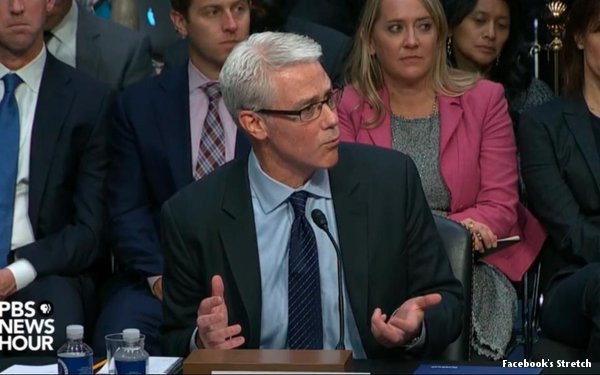
Twitter Acting General Counsel Sean
Edgett told Congress that less than 5% of the microblogging network’s users are fake.
During testimony before a Senate committee hearing that also included legal and policy
executives from Facebook and Google, Edgett said: “We estimate that less than 5% of Twitter users are false accounts, spam or automated.”
The disclosure appears to dispel
industry wisdom that a significant amount of the traffic on Twitter is from bots.
The testimony, which was far-ranging, got into intricate details covering steps that the major
digital platforms take to avoid being used for disinformation, especially by foreign actors such as Russia or Islamic Jihadist groups.
During his testimony, Facebook Vice
President and General Counsel Colin Stretch reiterated the social network’s recent efforts to “review and tighten” its ad policies.
He added that one of the new
steps Facebook is taking is to “tighten our content policies in ads as it relates to violence.”
“It has no place on Facebook, regardless of source,” he
asserted.
In one of the most damaging exchanges, Senator John Kennedy grilled Facebook’s Stretch on whether the social network had any means of knowing exactly who its
advertisers were and whether hostile agents could use it without disclosing who they are.
“We are not able to see beyond the activity we see on the platform,” Stretch
conceded.
Asked whether Facebook has any way to detect who is representing any of its five million advertisers by Senator Kennedy, Facebook’s Stretch said: “The answer
is, of course, no. We cannot see beyond the activity.”
An even more awkward moment occurred when Senator Amy Klobuchar grilled Google’s Richard Salgado on whether it was
paying Russia on a split of the ad revenues it generates from Russia’s RT YouTube channel.
Sen. Klobuchar: “Is it safe to say here then, that they make a
significant amount of money in shared ad revenue from you? Is Google actually paying this Kremlin-owned entity?”
Salgado: I think RT is making money on
ad revenues through their YouTube channel.
Sen. Klobuchar: Do you actually pay them? Is Google paying them?
Salgado: I’m not
eactly sure how the money flows, but we would certainly be involved in the renumeration to the YouTube channels.
Klobuchar: That sounds like you are paying them.
Salgado: It, it, it may be. The only reason I am hesitating is I don’t know exactly the financial flow.
Sen. Klobuchar:
We’ll follow up in writing.
Perhaps the most damning exchange came when Senator Al Franken asked Facebook’s Stretch how much money the social network made from ads targeting
“Jew haters,” an algorithmically-generated audience break that was first identified by an investigative reporting team at ProPublica that actually bought ads utilizing that target.
When
Facebook’s Stretch demured, saying Facebook didn’t know if the target was ever used -- presumably meaning other than ProPublica’s buy -- Sen. Franken reiterated: “You
don’t know how much revenue you generated from ad campaigns targeting Jew-haters?”
“We’re not aware of any revenue that was generated using that
target,” Stretch confirmed.